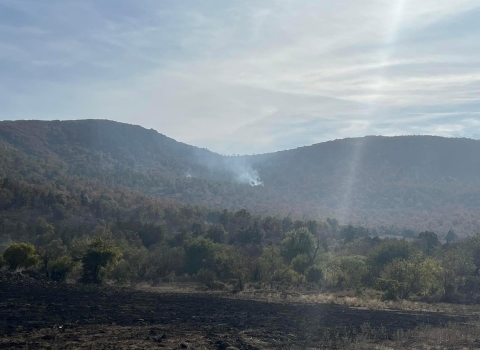The U.S. Fish and Wildlife Service today announced it is seeking public comment on a draft amendment to the Key deer recovery plan. The amendment explicitly incorporates the threat of sea-level rise in delisting criteria that was not included when the recovery plan was initially developed. In addition to the downlisting criteria, the draft amendment will include requirements that must be met before the delisting of North America’s smallest deer can occur. The Key deer was listed under the Endangered Species Act (ESA) in 1967. An amendment to a recovery plan does not affect the current ESA status of the species.
This draft recovery plan amendment is part of a larger effort by the Department of the Interior to ensure all species recovery plans have quantitative criteria for what constitutes a recovered species. The Service used the best available science to develop the draft delisting criteria to meet this goal.
Recovery plans are non-regulatory documents that provide guidance on how best to help recover species. An amendment is a type of recovery plan revision that is limited in scope and modifies, rather than replaces, an existing recovery plan. The Service shares draft revisions of ESA recovery plans with the public to provide a roadmap for recovering federally protected species.
In the 1950s, unregulated hunting and large-scale development left the Key deer population at about 25 individual animals and led to the creation of the 9,000-acre National Key Deer Refuge in 1957 on Big Pine Key. Sea level rise threatens the species in the long term as it reduces the amount and quality of their habitat.
Communities and countries all over the world are dealing with a crisis of extinction. With climate change climate change
Climate change includes both global warming driven by human-induced emissions of greenhouse gases and the resulting large-scale shifts in weather patterns. Though there have been previous periods of climatic change, since the mid-20th century humans have had an unprecedented impact on Earth's climate system and caused change on a global scale.
Learn more about climate change and habitat loss pushing more and more species to the brink, now is the time to be proactive, collaborative and innovative in our efforts to save America's wildlife and plant species.
The ESA is extraordinarily effective at preventing species from going extinct and has inspired action to conserve at-risk species and their habitat before they need to be listed as threatened or endangered. Since it was signed into law in 1973, more than 99 percent of all species listed under the law are still with us today.
Comments from local, state and federal agencies, Tribes, non-governmental organizations and the public are invited to inform the threats, recovery needs and implementation concerns for the endangered Key deer.
The public can review the draft amendment to the recovery plan at the Service’s website at https://www.fws.gov/node/266264. Submit comments by email to: keydeer_draft_recoveryplan@fws.gov. Please include “Draft Recovery Plan Revisions Comments for Key Deer” in the subject line. We must receive comments on the draft recovery plan revisions on or before August 11, 2022. Visit our Frequently Asked Questions to learn more.
FOR FURTHER INFORMATION CONTACT: Lourdes Mena at 904-731-3134. Individuals who are hearing impaired may call the Federal Relay Service at 800–877–8339 for TTY assistance.




